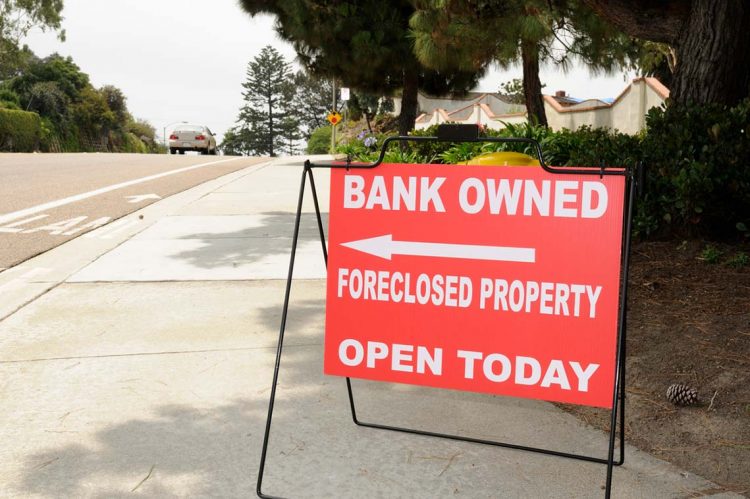A total of 25,833 U.S. properties with foreclosure filings—default notices, scheduled auctions or bank repossessions—are up 11% from a month ago and 129% from a year ago, according to ATTOM’s February 2022 U.S. Foreclosure Market Report, released this week.
“February foreclosure activity looks a lot like what we can expect to see for at least the next six months—double digit month-over-month growth, and triple digit year-over-year increases,” said Rick Sharga, executive vice president at RealtyTrac, an ATTOM company. “This isn’t an indication of economic turmoil, or of weakness in the housing market; it’s simply the gradual return to normal levels of foreclosure activity after two years of artificially low numbers due to government and industry efforts to protect financially-impacted homeowners from defaulting.”
Foreclosure completion numbers decline from last month
Lenders repossessed 2,634 U.S. properties through completed foreclosures (REOs) in February 2022, down 45% from last month but up 70% from last year.
States that had at least 100 or more REOs and saw the greatest monthly decreases in completed foreclosures in February 2022 included: Michigan (down 81%); Texas (down 58%); California (down 52%); Florida (down 43%); and New Jersey (down 27%).
Those major metropolitan statistical areas (MSAs) with a population greater than 200,000 that had 25 or more REOs in February 2022 and saw the greatest monthly decreases in completed foreclosures included: Detroit, Michigan (down 87%); Los Angeles, California (down 63%); St. Louis, Missouri (down 50%); Riverside, California (down 46%); and New York, New York (down 40%).
“The reduced number of foreclosure completions suggests that much of the activity we saw in January was a result of mortgage servicers catching up on processing loans that had been in foreclosure or very seriously delinquent prior to the pandemic and the moratorium,” Sharga noted. “We can expect more month-to-month volatility as servicers and the court systems work through some of these backlogs.”
Foreclosure starts increase monthly in 40 states including the District of Colombia
Lenders started the foreclosure process on 16,545 U.S. properties in February 2022, up 40% from last month and 176% from a year ago.
Those states that saw the greatest numbers of foreclosures starts in February 2022 included: California (1,868 foreclosure starts); Florida (1,527 foreclosure starts); Texas (1,488 foreclosure starts); Illinois (1,168 foreclosure starts); and Ohio (1,144 foreclosure starts).
Among the 220 metropolitan statistical areas with a population of at least 200,000, those that had the greatest numbers of foreclosure starts in February 2022, included: Chicago, Illinois (1,075 foreclosure starts); New York City (793 foreclosure starts); Los Angeles, California (530 foreclosure starts); Houston, Texas (471 foreclosure starts); and Atlanta, Georgia (415 foreclosure starts).
Highest foreclosure rates in New Jersey, Illinois, and Ohio
Nationwide one in every 5,320 housing units had a foreclosure filing in February 2022. States with the highest foreclosure rates were New Jersey (one in every 2,510 housing units with a foreclosure filing); Illinois (one in every 2,521 housing units); Ohio (one in every 2,801 housing units); South Carolina (one in every 3,001 housing units); and Nevada (one in every 3,112 housing units).
Among the 220 metropolitan statistical areas with a population of at least 200,000, those with the highest foreclosure rates in February 2022 were Cleveland, Ohio (one in every 1,483 housing units with a foreclosure filing); Atlantic City, New Jersey (one in every 1,832 housing units); Columbia, South Carolina (one in every 1,890 housing units); Lakeland, Florida (one in every 1,983 housing units); and Chicago, Illinois (one in every 2,058 housing units).
Other than Cleveland and Chicago, among the metropolitan areas with a population greater than 1 million, those with the worst foreclosure rates in February 2022 included: Jacksonville, Florida (one in every 2,452 housing units); Las Vegas, Nevada (one in every 2,472 housing units); and Orlando, Floridia (one in every 2,655 housing).
For more information, visit https://www.attomdata.com/.












